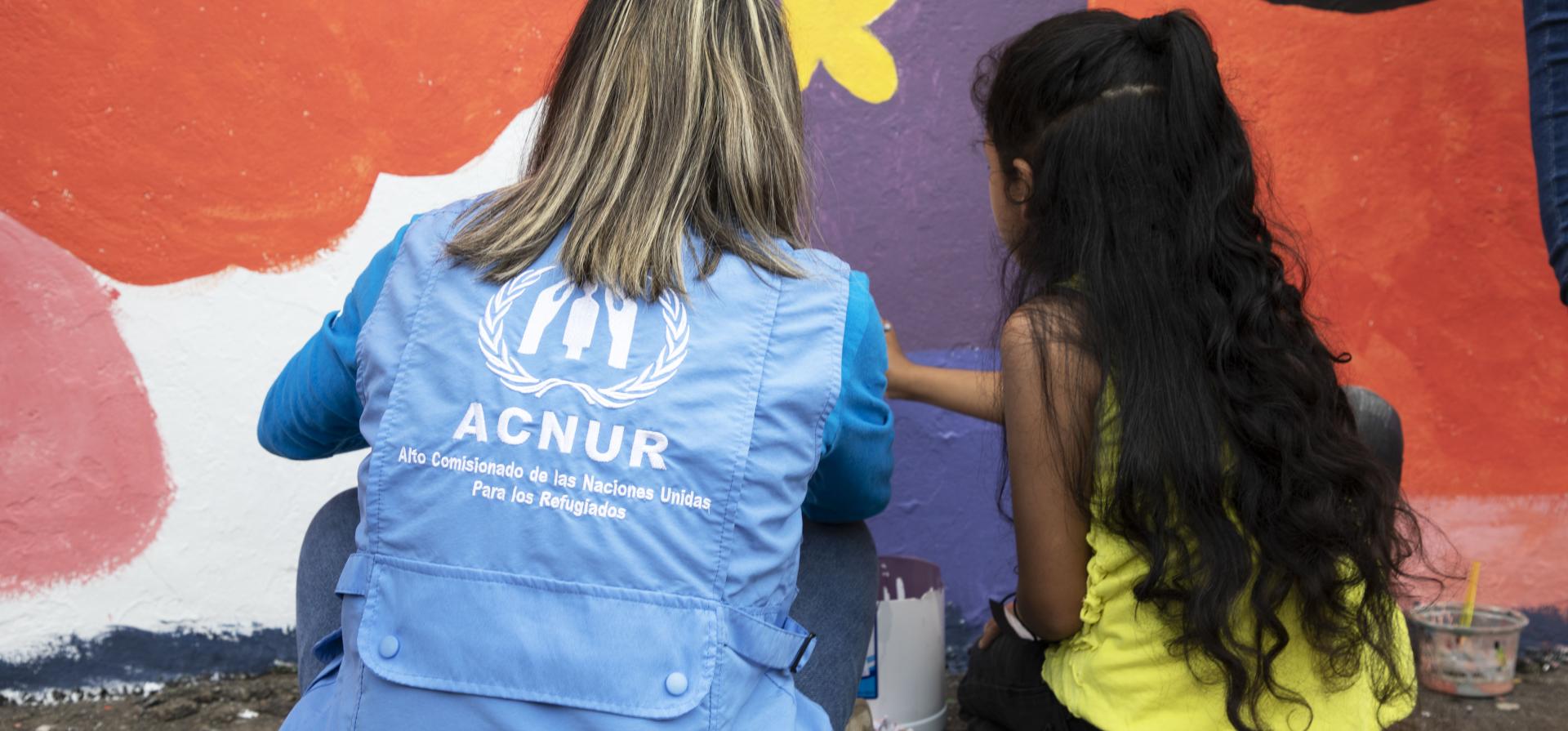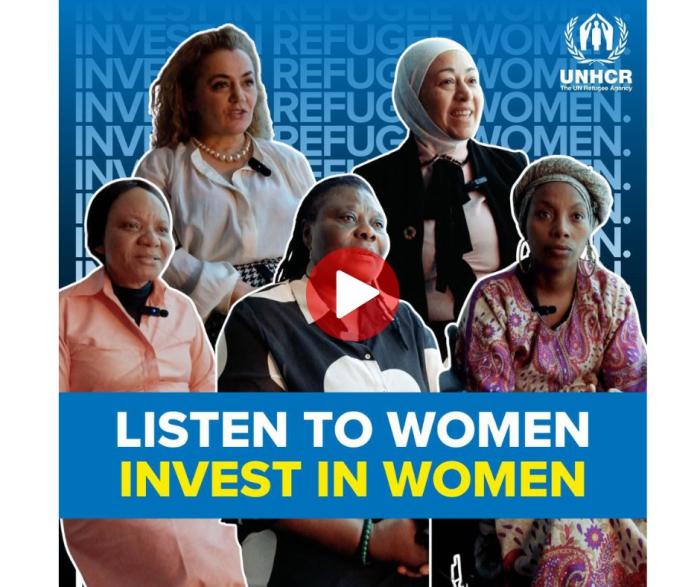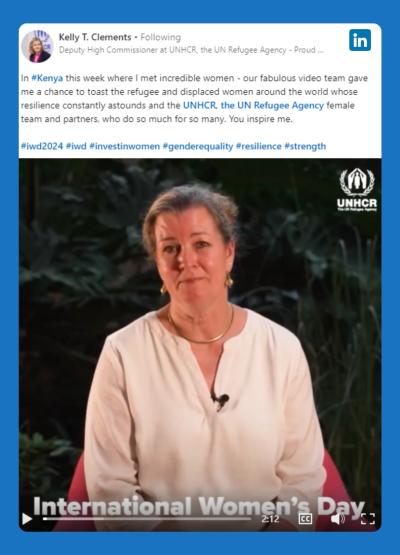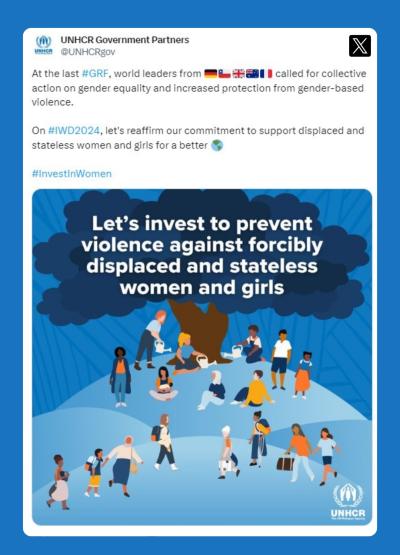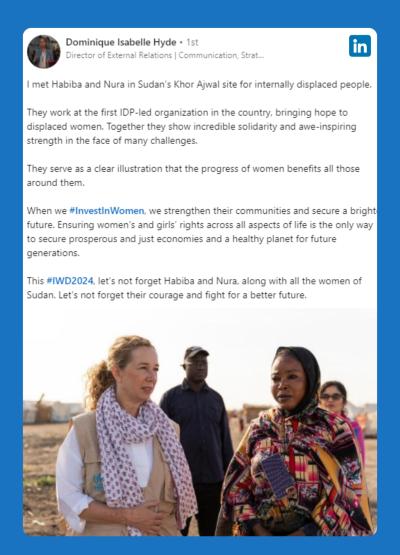What is gender-based violence?
Gender-based violence (GBV) is a serious violation of human rights and a life-threatening health and protection issue and can take many forms such as intimate partner violence, sexual violence, child marriage, female genital mutilation and so-called ‘honour crimes’.
GBV is rooted in gender inequality, the abuse of power and harmful norms. Read more on UNHCR's global website.
What is gender equality?
UNHCR defines gender equality as the equal enjoyment of rights, responsibilities and opportunities of all people and means that the interests, needs and priorities of all are respected, regardless of their gender.
UNHCR recognizes that gender equality is fundamental to the well-being and rights of all people and is committed to ensuring that gender considerations are accounted for throughout our work, including in emergency contexts, and in providing health, education, shelter and settlement, WASH, cash-based interventions and livelihoods support.
UNHCR's commitments
UNHCR is committed to protecting and assisting refugees worldwide and to ensuring that international standards of protection are met.
In line with the United Nation’s overall efforts to advance gender equality and respect for human rights, the UNHCR Strategic Directions 2022-2026 emphasizes the importance of gender equality and lays out commitments to strengthen gender-based violence prevention, risk mitigation and response in accordance with UNHCR’s Policies on GBV and on Age, Gender and Diversity.
How UNHCR supports localisation and engagement with women-led organisations
UNHCR partnered with over 200 international, national, and local actors in 2022 to provide specialized gender-based violence prevention and response programming.
Of over $57 million provided to partners, $29 million supported 155 national and local NGOs, including community-based organizations.
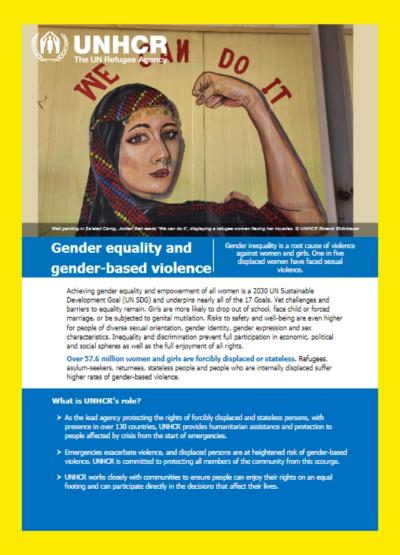
Gender equality and gender-based violence brief
In 2024, UNHCR seeks $368 million to support safe accommodation, legal assistance, psychosocial support, and cash assistance for survivors of gender-based violence, and to implement prevention programmes.
This does not cover all budget requirements to address gender equality, as this is incorporated into nearly every aspect of UNHCR’s efforts (such as registration, education programmes or livelihoods support).
Flexible support (unearmarked or softly earmarked for this purpose) helps UNHCR adapt its response in rapidly changing situations, including emergencies.
Read the brief
Key figures
Estimates suggest 1 in 5 forcibly displaced women is subjected to sexual violence and a World Bank analysis documented higher risks of intimate partner violence among women who are displaced.
Main documents
Latest updates
Other documents
- Global Report 2022 - Chapter on Gender-based violence
- UNHCR: Heightened risks, violations and sexual violence reported by civilians fleeing Sudan | 2023
- UNHCR and HIAS: Forcibly Displaced Women at High Risk of Gender-Based Violence in Latin America | 2022
-
Gender Equality Promising Practices: Syrian Refugees in the Middle East and North Africa | 2017
